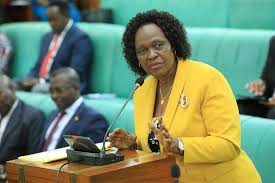Uganda has called for the operationalising of the Loss and Damage Fund ahead of the 29th Conference of the Parties (COP) to the United Nations Framework Convention on Climate Change.
The conference will kick off on November 11 in Azerbaijan’s capital, Baku. Convening for two weeks, the meeting will have crucial negotiations, dynamic discussions, and global collaboration, all focused on tackling the climate crisis with urgency and ambition.
The Loss and Damage Fund was established during COP 28, which happened last year in Dubai, United Arab Emirates. During the conference, several developed nations pledging substantial commitments.
“For Uganda, where the impacts of climate change are immediate and intense, this fund is not merely financial relief—it is the acknowledgement of a historical responsibility,” Beatrice Anywar, the Minister of State for Environment, said.
She said the fund must be fully operationalised and accessible, with streamlined mechanisms for vulnerable nations. Uganda will advocate for this fund to not only provide relief but to empower communities in rebuilding their futures. At COP29, we will advocate for the full activation and accessibility of this fund.
Anywar revealed that Uganda has finalised the National Climate Change Mechanisms Regulations to guide carbon trading and investments. Ugandan negotiators will press the case for COP29 to approve the rules, modalities, methodologies, and frameworks for countries to participate in carbon market mechanisms.
“Uganda will also call the attention of the world to emerging issues associated with climate change, especially the problem of climate change-induced migration in Africa. The number of affected people, particularly women and children, who are displaced within and across national borders is consistently on the rise with devastating consequences,” she said.
The current climate finance agreement, set in 2009 and 2015, aims to mobilise $100 billion annually for mitigation and adaptation in developing countries until 2025. At COP29, a new climate finance target, the New Collective Quantified Goal (NCQG), is expected to be set to exceed $100 billion, focusing on the needs of developing nations.
Recognising that climate finance is a key enabler of climate action, especially in developing countries, Uganda looks up to COP29 to set a New Collective Quantified Goal (NCQG) on climate finance that takes into consideration the unique circumstances of Least Developing Countries (LDCs) and Small Island Developing States (SIDs) in dealing with the disproportionate impacts, losses, and damage that these countries have to continue to suffer in the face of climate variability and climate change.








